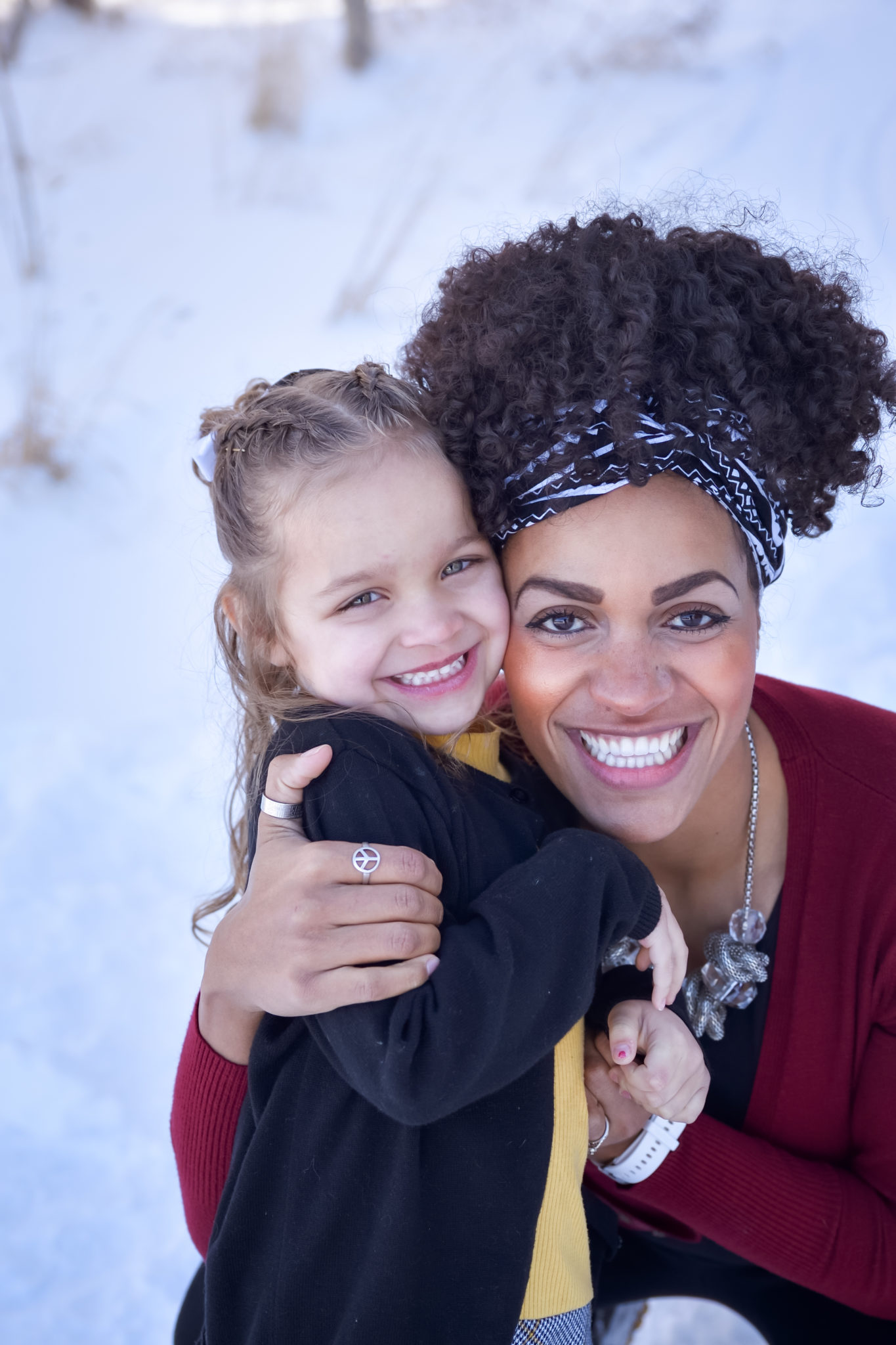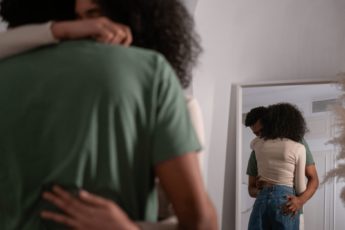My oldest child was born in the summer of 2015. When I found out we were having a girl, I was ecstatic. My mother had given me a sewing machine for Christmas and I was dying to try out some of the cute blanket, headband, and clothing patterns I had pinned on Pinterest. One weekend my mom came to visit and we made six baby skirts, three baby dresses, and two swaddle blankets. I even sewed a stuffed monkey out of a pair of socks I never wore.
One of my favorite ways to pass the time was to scroll through Instagram and Pinterest looking for cute baby and toddler hairstyles for Ethnic Hair. I watched hours of YouTube videos for tips about the best hair products for babies with Ethnic Hair and how to teach daughters to love their hair and embrace who they are.
I couldn’t help but imagine how my daughter and I would bond on washday and all of the things I would do to make sure that she loved her curls. I taught myself how to cornrow and do braided and crochet extensions. During the last few weeks of the pregnancy when I couldn’t sleep, I would feel her roll around in my belly and envision the two of us watching The Princess and the Frog while she ate suckers and I finger-detangled her coarse hair with coconut oil. We would laugh and chat while my fingers braided and beaded her perfectly moisturized hair.

Imagine my surprise and –I admit—dismay when my oldest daughter didn’t come out brown or even light brown. I was happy she was here and healthy. And she was beautiful. And my heart grew when I held her to my chest. And when I nursed her for the first time I felt a love for her that is difficult to explain. And after she had been in our home for about a week, I couldn’t remember what life was like before she was born because it felt like she had always been there because she was such a natural part of our small family.
We went to church with my parents a few Sundays after she was born. We sat in the foyer because we were worried about crowds and their germs infiltrating her tiny, brand new immune system. When the service was over, we headed for the car before too many people could stop in the hall to gawk at her or touch her or breathe on her. A family friend chased us down in the parking lot. “Wait!” she said, “I have to take a look at this White baby.” And this woman looked at my daughter and then looked at me and said with a smile full of laughter: “That is hilarious.”
I smiled back politely, waved, said something like “it was good to see you again,” closed the car door, and we left. When I was nursing our daughter that afternoon, I cried.
This beautiful baby of mine was, in fact, mine. My husband and I made her. I grew her in my tummy for almost 40 weeks. I felt her move inside of me as she grew. I watched as she was born and cried tears of joy when I held her close to me and counted her fingers and toes. This beautiful baby is my daughter, but she doesn’t look a thing like me. She does not have my brown skin. Her eyes are a light greyish-green. And her hair grew in light brown and straight.
I was raised in a majority White town by two White parents. My mom and dad are amazing people who I love and admire. After two pregnancies that almost killed her, my mom had to have a c-section. Both she and my dad felt like they wanted to have more children, so in the mid-1980s they decided to adopt. Not only that, but they decided to adopt African-American children. My oldest brother was born in 1988, I followed four years later, and three more children came after that.
One of the many things my parents did incredibly well was to raise all of us to love ourselves and to believe in our capacity to accomplish amazing things. My mother learned how to take care of Ethnic Hair and skin. She bought us books featuring Black characters. She made sure I had Black baby dolls and Barbie dolls to play with. Our home was fun, loving, supportive, and very loud. There were seven kids living there, after all.
In spite of all of this love and encouragement, I grew up feeling very isolated. I didn’t have any Black friends or teachers or church leaders. While I knew that my parents loved and supported me, there were (and still are) things that come with being a Black woman that they can’t identify with. I remember looking forward to being able to help my own children in ways that my parents –through no fault of their own—simply could not.
My daughter is getting ready to turn five now. She is smart, funny, polite, and patient. She loves to learn and to read and to build Legos. She is friendly and makes new friends easily. And she loves spending time with her dad and with me and sitting still while I fix her hair. I love her so much and I still can’t imagine my life without her. At the same time, I had to allow myself time to grieve once I realized that she wasn’t going to look like me and that I was still an island. A curly-haired, brown-skinned island in a sea of White faces.
I wrote this poem when my daughter was about 2-years-old. At this time, it was clear to me that her skin would stay light, her hair would stay straight, and her eyes would forever be greyish-green. This child whom I loved with all of my heart was not going to look like me and we were not going to bond on washday.

Brownish
Cree Phillips Taylor
I am black but my skin is brown.
At least it is according to
my daughter.
She looks at her own arm asking me its color.
I don’t want to say she has
white skin
because that would mean she doesn’t have skin like me
and what I really wanted in my own flesh and blood
was someone with skin like me.
That’s what I really wanted
in my own flesh and blood. In my own flesh and blood I wanted
to see myself;
not the translucent canvas of my adoptive mother
speckled with aging polka dots, or the acne-scarred, poplar-bark
of my adoptive father.
Lonely and longingly
I look at collections of families with offspring whose flesh mirrors flesh,
whose eyes are their father’s eyes, whose smile is their mother’s smile
and my heart leaks and I answer again
— yes, this is my daughter —
she came out of me crying, covered in my blood, lifeline fitted
securely to my placenta.
My blood pulsing aggressively through her veins.
My breast filling her belly and subduing her cries.
But not my skin.
Not skin like me. My blood,
my blood, my blood. But not my skin.
“Brownish,” I say.
In the summer of 2018, I gave birth to a baby boy. I held out hope that he might look like me, but he came out with blue eyes, blonde curly hair, and brown(ish) skin.

0 for 2.
As the years have gone by, I have learned that the mother-child bond is more complex than I will ever understand. In the end, all of this is in God’s hands and the children that I bring into my home need me and I need them. It is all part of His beautiful plan for me. Everything will be fine and work out in the end. Even as I type these words and know in my mind that they are true, I can’t help but wonder if the little girl currently growing in my tummy will come out looking like her Mama. And, if she does, how will that shape the way I love her?
Peace + Love,
Mommi Contributor Cree Phillips Taylor







Leave a Reply